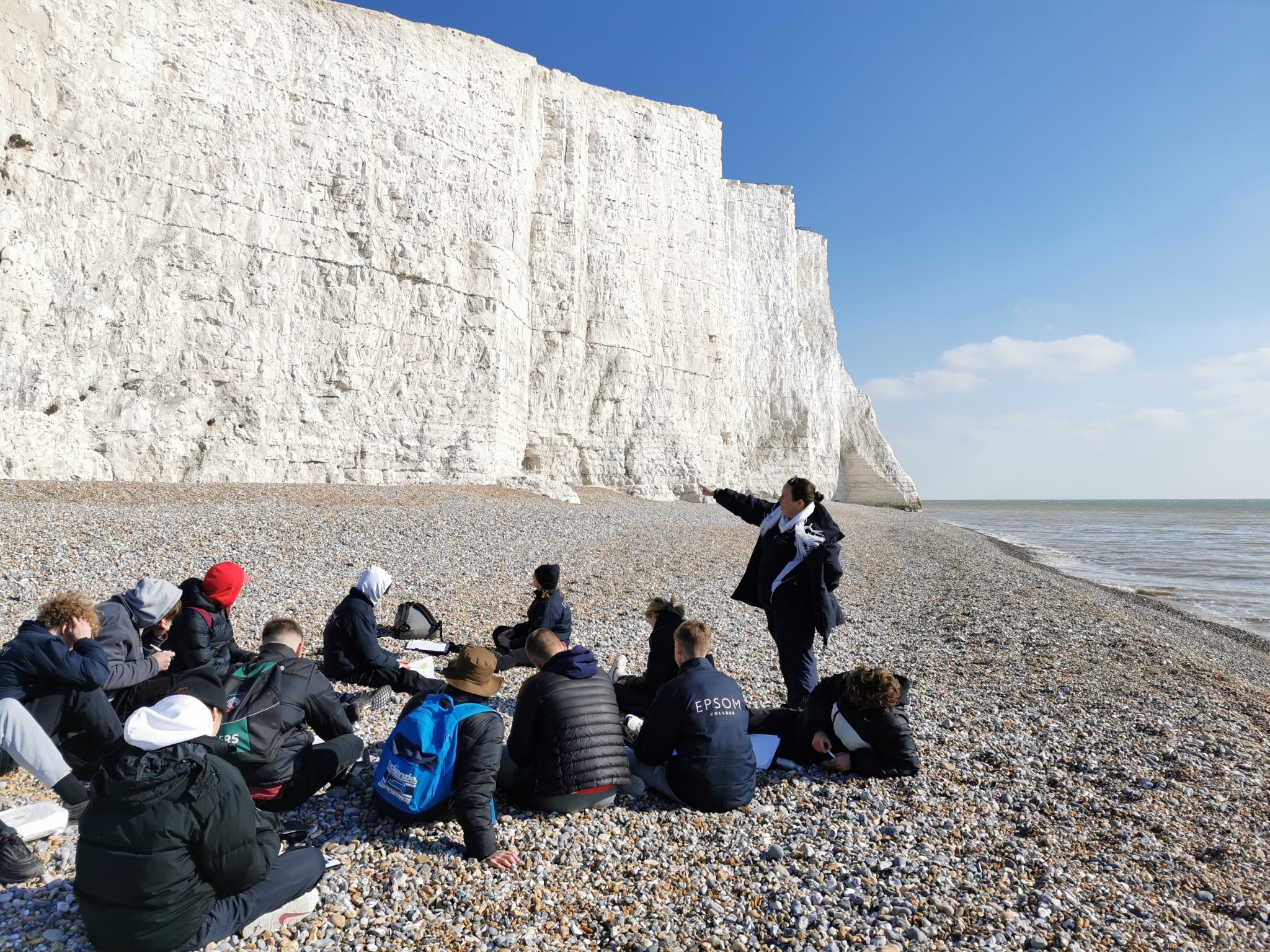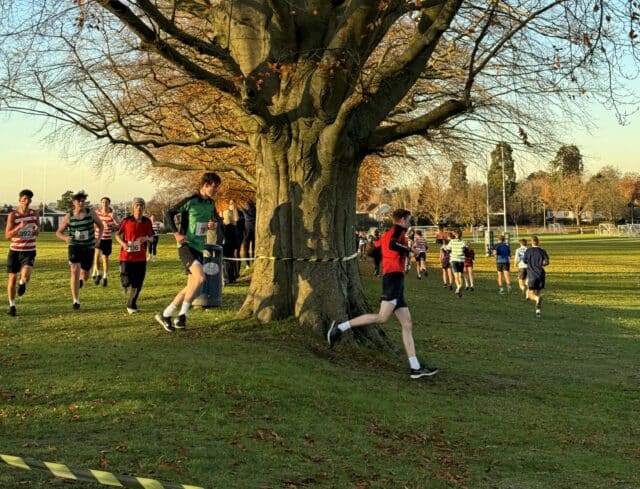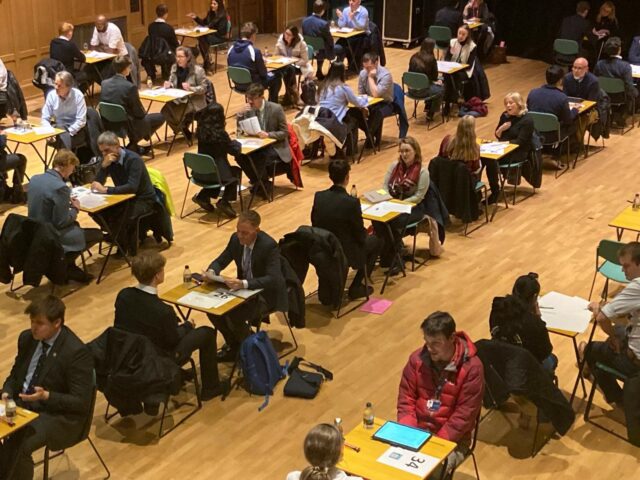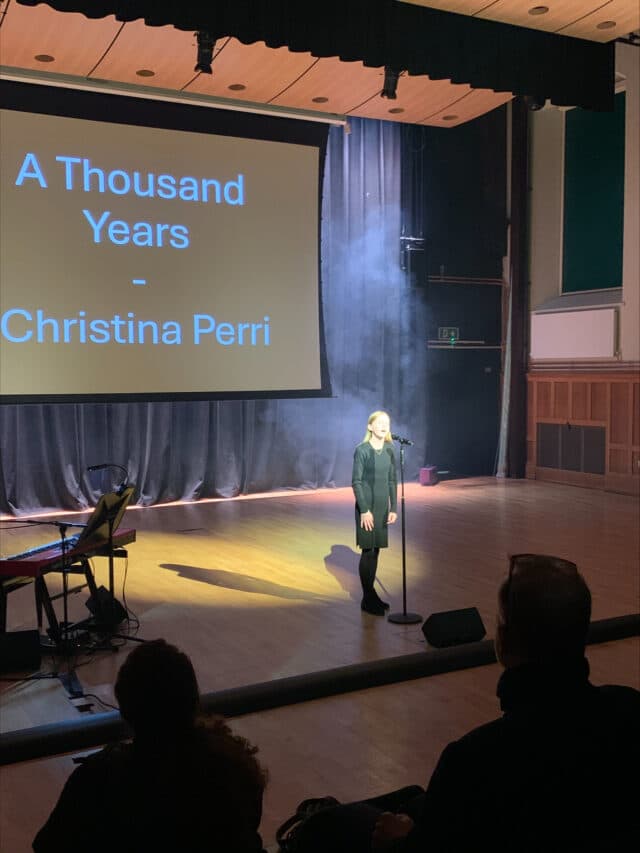After a hiatus of trips due to Covid-19, the Geography Department was excited to get students back in the field, collecting primary data in preparation for their own independent investigation.
The students spent the day at Cuckmere Haven which has fantastic views of the Seven Sisters on a clear sunny day. Students were conducting investigations into the geology and the resulting landforms by rotating around four different data collection stations. They collected data on the beach profile, wind speed and direction, measured the PH of soils at the backshore and sketches of the cliff showing the geology including joints and bedding planes. Students enjoyed the opportunity to handle specialist equipment and learn how they worked including anemometers (to measure wind speed) and clinometers (to measure slope angles).
This practical work enables students to really embed their classroom learning and see the different coastal processes they had been studying. The students could also try different data collection techniques and assess their reliability and accuracy. Overall, a valuable experience for the Lower Sixth students.
Lower Sixth student, Fu, wrote “True to physical geography fieldwork trips, the March sea air made itself known. However, the sun was shining, the sky was a perfect blue and the white limestone cliffs stood proudly and dramatically, edging out our curiosity. Our investigation into the coastal processes shaping Cuckmere Haven helped us understand the breadth of what we could do for our coursework in terms of data collection. Personally, I thoroughly enjoyed testing soil PH using universal indicator paper which then explained the presence of extremophilic vegetation found in that area, measuring the rate of longshore drift using the unlikeliest of objects (a dog biscuit) and understanding why the chalk cliffs are peppered with horizontal lines of flint.”





